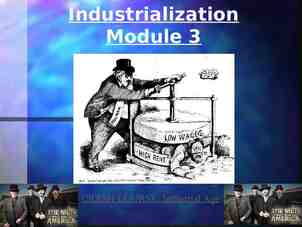A Brief Introduction to the Law of War jus in bello
22 Slides134.63 KB

A Brief Introduction to the Law of War jus in bello

Nuremberg Principles: The Nuremberg trials of the Nazi officials for war crimes lead to these principles, which are incorporated in the Geneva Protocols 2

The Assumptions Behind the Principles and Conventions These assume that the parties bound by the principles and conventions are nation states. It was assumed that nation states with functioning legal systems would enforce the principles against their citizens. If that failed, then other nations would enforce them through trials for war crimes. Nation states would respect the principles because they would want their own nationals protected during times of war. Think about whether the principles assume that the nation states would be bound by them when fighting against NGOs, such as non-state terrorist groups.

Principle I Any person who commits an act which constitutes a crime under international law is responsible therefor and liable to punishment. 4

Principle II The fact that internal law does not impose a penalty for an act which constitutes a crime under international law does not relieve the person who committed the act from responsibility under international law. 5

Principle III The fact that a person who committed an act which constitutes a crime under international law acted as Head of State or responsible Government official does not relieve him from responsibility under international law. 6

Principle IV The fact that a person acted pursuant to order of his Government or of a superior does not relieve him from responsibility under international law, provided a moral choice was in fact possible to him. 7

Principle V Any person charged with a crime under international law has the right to a fair trial on the facts and law. 8

Principle VI – Crimes The crimes hereinafter set out are punishable as crimes under; international law: 9

Crimes against peace: Planning, preparation, initiation or waging of a war of aggression or a war in violation of international treaties, agreements or assurances; Participation in a common plan or conspiracy for the accomplishment of any of the acts mentioned under (i). 10

War crimes: Violations of the laws or customs of war which include, but are not limited to, murder, ill-treatment or deportation to slave-labor or for any other purpose of civilian population of or in occupied territory, murder or ill-treatment of prisoners of war, of persons on the seas, killing of hostages, plunder of public or private property, wanton destruction of cities, towns, or villages, or devastation not justified by military necessity. 11

Crimes against humanity: Murder, extermination, enslavement, deportation and other inhuman acts done against any civilian population, or persecutions on political, racial or religious grounds, when such acts are done or such persecutions are carried on in execution of or in connection with any crime against peace or any war crime. 12

Grave Breaches Grave breaches to which the preceding Article relates shall be those involving any of the following acts, if committed against persons or property protected by the present Convention: wilful killing, torture or inhuman treatment, including biological experiments, wilfully causing great suffering or serious injury to body or health, unlawful deportation or transfer or unlawful confinement of a protected person, compelling a protected person to serve in the forces of a hostile Power, or wilfully depriving a protected person of the rights of fair and regular trial prescribed in the present Convention, taking of hostages and extensive destruction and appropriation of property, not justified by military necessity and carried out unlawfully and wantonly. 13

Principle VII Complicity in the commission of a crime against peace, a war crime, or a crime against humanity as set forth in Principles VI is a crime under international law. 14

The Commander’s Handbook on the Law of Land Warfare (2019)

The Main Purposes of the Law of Armed Combat (LOAC) are: Protecting combatants, noncombatants, and civilians from unnecessary suffering; Providing certain fundamental protections for persons who fall into the hands of the enemy, particularly prisoners of war, military wounded and sick, and civilians; Facilitating the restoration of peace; Assisting the commander in ensuring the disciplined, ethical, and effective use of military force; Preserving the professionalism and humanity of combatants; and Preventing the degeneration of warfare into savagery or brutality.

Common Article 3 (always applies) Art. 3. In the case of armed conflict not of an international character occurring in the territory of one of the High Contracting Parties, each Party to the conflict shall be bound to apply, as a minimum, the following provisions: 17

Common Article 3 - Continued (1) Persons taking no active part in the hostilities, including members of armed forces who have laid down their arms and those placed hors de combat by sickness, wounds, detention, or any other cause, shall in all circumstances be treated humanely, without any adverse distinction founded on race, colour, religion or faith, sex, birth or wealth, or any other similar criteria. 18

Common Article 3 - Continued To this end, the following acts are and shall remain prohibited at any time and in any place whatsoever with respect to the abovementioned persons: (a) violence to life and person, in particular murder of all kinds, mutilation, cruel treatment and torture; (b) taking of hostages; (c) outrages upon personal dignity, in particular humiliating and degrading treatment; (d) the passing of sentences and the carrying out of executions without previous judgement pronounced by a regularly constituted court, affording all the judicial guarantees which are recognized as indispensable by civilized peoples. 19

Martens Clause (default) Until a more complete code of the laws of war has been issued, the High Contracting Parties deem it expedient to declare that, in cases not included in the Regulations adopted by them, the inhabitants and the belligerents remain under the protection and the rule of the principles of the law of nations, as they result from the usages established among civilized peoples, from the laws of humanity, and the dictates of the public conscience. [This applies if no other rules clearly fit.]

HONOR 1-31. Honor is a core Army and Marine Corps value. Honor, also called chivalry, demands a certain amount of fairness in offense and defense, and a certain mutual respect between opposing forces. While the word “chivalry” is often associated with a specific historical context—a code of ethics or conduct for knights in Europe during the Middle Ages—honor draws from warriors’ codes from a variety of cultures and time periods (see DOD Law of War Manual, 2.6.1). Honor is a matter of carrying out, acting, and living out other core values, such as respect, duty, loyalty, selfless service, integrity, and personal courage, in everything Soldiers and Marines do. It has been vital to the development of LOAC and continues to give LOAC vitality today. Honor also requires adherence to LOAC regardless of the enemy’s level of compliance.







